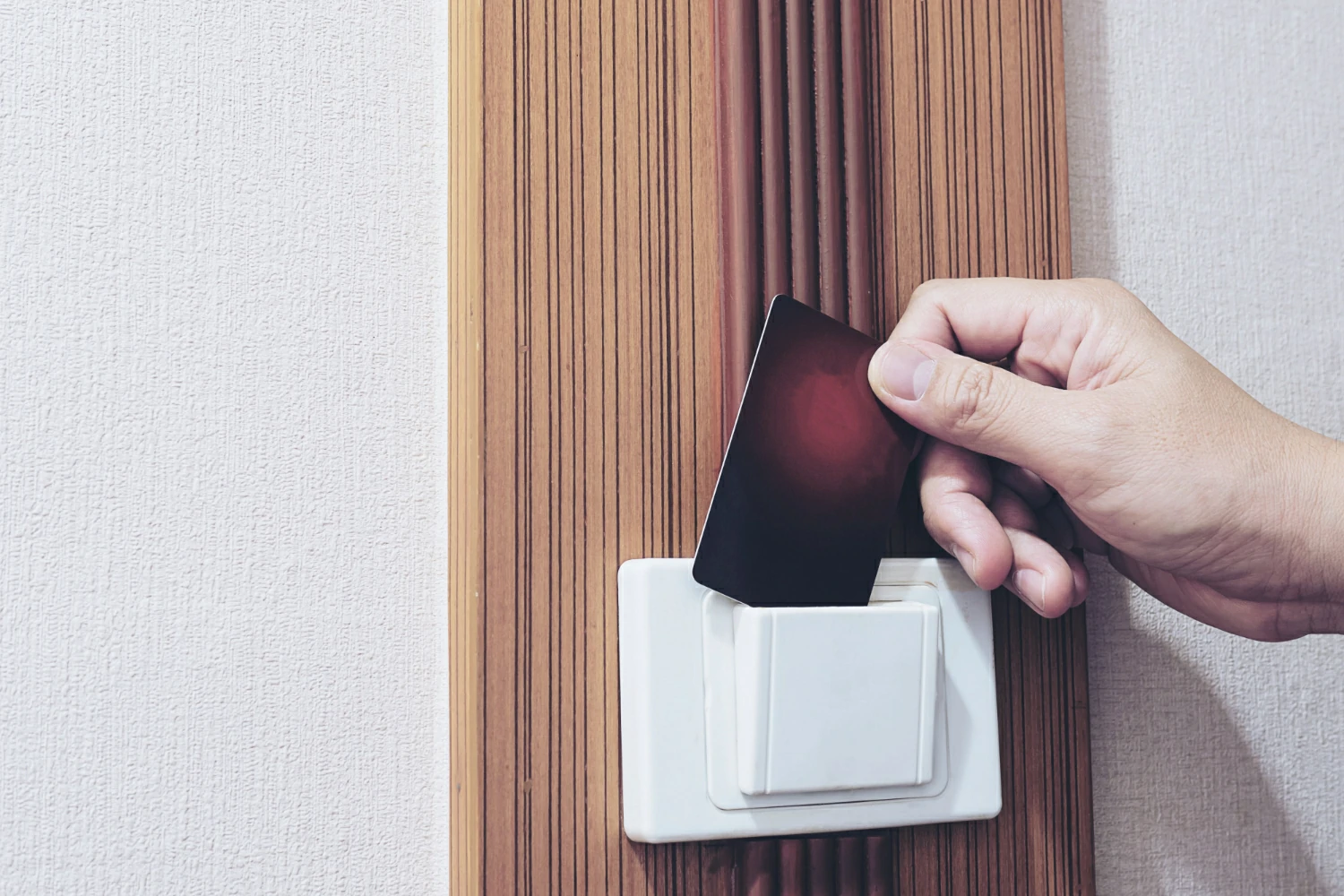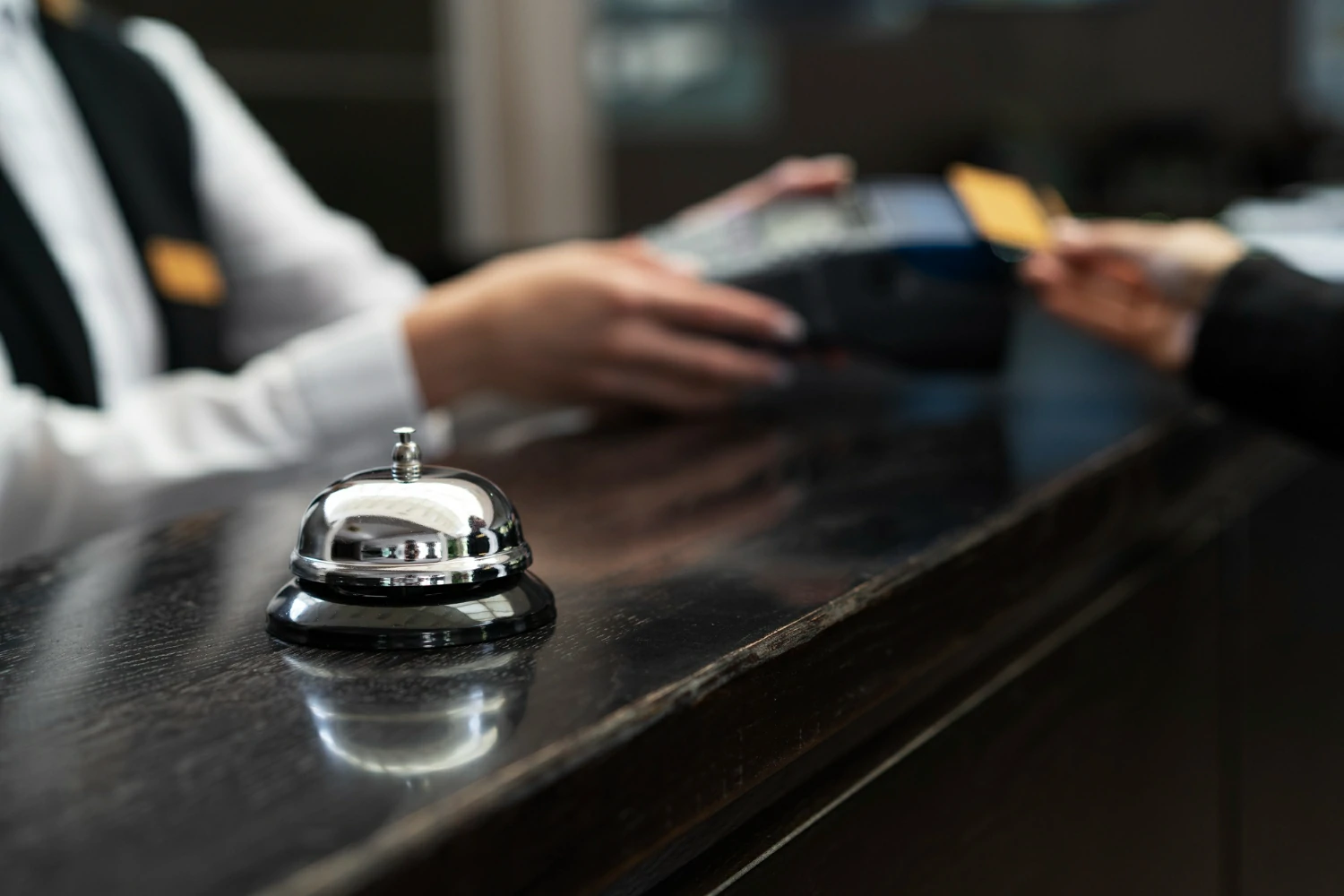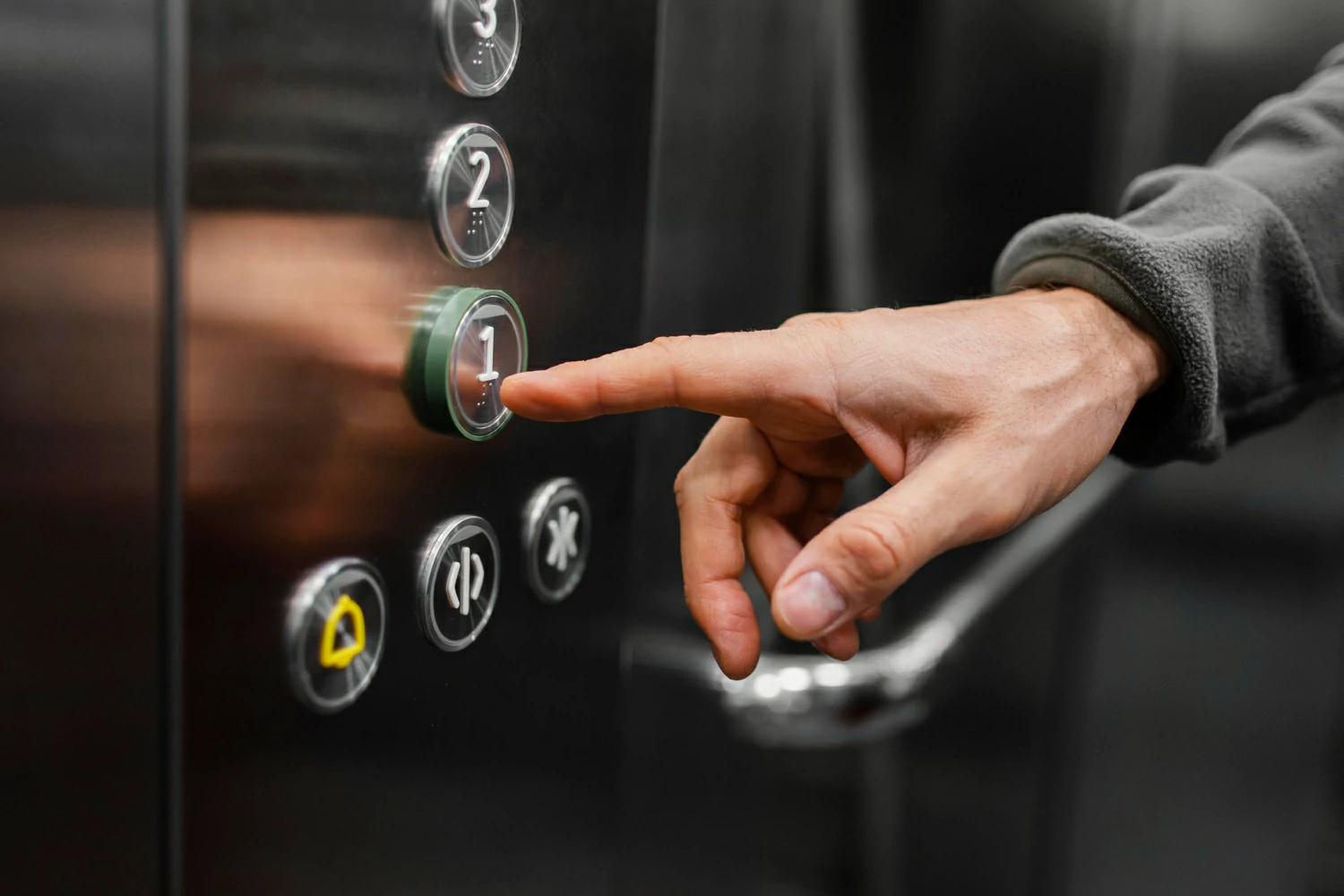Do hotels charge for lost key cards? Answer is – Yes, hotels often charge a fee for lost key cards. This fee is intended to cover the cost of replacing the card, reprogramming the lock if necessary, and to deter guests from carelessly losing the key card. The specific amount can vary from hotel to hotel.
Summary
- Hotels frequently charge for lost key cards.
- The fee covers replacement costs and potential security reprogramming.
- Fees vary depending on the hotel’s policy.
- Policies for lost keys are often listed in the hotel’s terms and conditions.
Do Hotels Charge for Lost Key Cards?

Hotel key cards have revolutionized the way we access our rooms while traveling. Gone are the days of bulky metal keys and the worry of accidentally leaving them behind.
These small plastic cards (or sometimes fobs) have become an essential element of the modern hotel experience.
Let’s explore what they are, why they’re important, and how they’ve transformed guest convenience and hotel security.
What are hotel key cards?
Hotel key cards are, in essence, electronic keys. They hold encoded information that interacts with a specific room’s door lock. There are a few different technologies used:
Magnetic Stripe Cards: These were the original form of hotel key cards. They operate much like a credit card, with a magnetic strip storing room and access duration information.
RFID (Radio-Frequency Identification) Cards: These ‘contactless’ cards use radio waves to transmit their data to the door reader. They’re often more durable and have the potential for added functionality than magnetic stripe cards.
NFC (Near-Field Communication) Cards: Similar to RFID, NFC is commonly used on modern key cards and increasingly in mobile key technology where your smartphone functions as the key.
The Importance of Hotel Key Cards

Hotel key cards offer significant advantages over traditional metal keys for both guests and hotels:
Enhanced Convenience for Guests: Key cards are compact, effortlessly fitting in a wallet or pocket. No more fumbling with bulky keys, and the ability to issue multiple cards per room is a significant plus for families or groups.
Improved Security: Unlike metal keys that can be easily copied, key cards are harder to replicate. If a card is lost, it can be deactivated remotely, eliminating the need for costly lock changes.
Streamlined Operations for Hotels: Key cards reduce front desk workload. Issuing a new key takes seconds. Plus, they can log door access, providing data to investigate any security concerns.
Potential for Added Functionality: Modern key card systems can be integrated with other hotel systems. This allows features like:
- Controlling room lighting and temperature
- Making cashless payments at hotel facilities
- Accessing amenities like the gym or pool
Sarah Peterson Expert Opinion
“Hotel key cards have been one of the most significant technological advancements in the hotel industry. They balance guest convenience with enhanced security, streamlining processes for both guests and staff alike.” – Sarah Peterson, Hotel Management Consultant with over 15 years of experience.
Do Hotels Charge for Lost Key Cards?

Yes, the majority of hotels do charge a fee for lost or unreturned key cards. This policy is in place for several reasons, which we’ll explore below. It’s important to note that the specific fee amount will vary depending on the hotel.
1. Why hotels charge for lost keys
Replacement Costs: The most obvious reason is that the hotel needs to recoup the cost of producing a new key card. This might seem insignificant, but the expense adds up when a hotel has to replace lost keys regularly.
Reprogramming Costs: Many modern key cards are linked to specific room locks for security purposes. If a key card goes missing, the hotel might have to reprogram the lock itself as a precaution. This process can involve labor costs for technicians or necessitate additional specialized equipment.
Security Concerns: Lost key cards present a potential security risk. Even if unlikely, there’s the chance someone could find the card and attempt to gain access to the room or other areas of the hotel. The fee acts as a deterrent for carelessness and reinforces the importance of keeping the card secure.
Administrative Overhead: Dealing with lost key cards takes up staff time. From issuing a new card to updating their systems and potentially reprogramming locks, there’s administrative work involved, which adds to operational costs.
2. Typical fee ranges
Fees for lost key cards can vary quite a bit between hotels. Here’s a general estimation of what you might expect:
- Budget-friendly Hotels: Fees often range from $5 to $20.
- Mid-range Hotels: Fees could be between $15 and $30.
- Luxury Hotels: It’s not uncommon for higher-end hotels to charge $50 or more for a lost key, reflecting the potential for more sophisticated security systems and higher perceived replacement costs.
Mark Thompson Expert Opinion
“While fees for lost key cards might seem like an inconvenience, they’re a necessary measure for hotels to protect both their guests and their property. By being responsible with your key card, you can avoid any unnecessary charges during your stay.” – Mark Thompson, General Manager at City Central Hotel
Hotel Policies and Fees

Understanding a hotel’s policy on lost key cards is crucial to avoiding unexpected charges. Luckily, this information is usually readily accessible in several places.
1. Where to find information on a hotel’s lost key policy
Hotel Website: Most hotels have a detailed “Terms and Conditions” or “Policies” section on their website. This is often the best place to get a comprehensive overview of fees and how the hotel handles lost keys. Search for terms like “lost key”, “key replacement”, or “fees”.
Booking Platforms: Many online travel agencies (OTAs) like Expedia or Booking.com include highlights of a hotel’s policies in the listing. Look for a section on “Important Information” or “Hotel Policies”.
Booking Confirmation Email: After booking a hotel, carefully review your confirmation email. It often includes a summary of key policies, including those relating to lost key cards.
Check-in Documentation: Upon arrival, some hotels provide guests with a printed or digital document outlining essential rules and fees, including their lost key policy.
Front Desk: If you can’t find the information elsewhere, don’t hesitate to ask a front desk staff member directly. They can clarify the hotel’s specific fee and any steps you need to take if you lose your key card.
2. Differences in policies between budget-friendly and luxury hotels
While the core concept of charging for lost keys is common across most hotels, there are distinct differences in how budget-friendly and luxury hotels approach these policies:
Budget-Friendly Hotels
- Fees: Generally on the lower end of the spectrum, usually between $5-$20 per lost card.
- Focus: Primarily focused on covering the direct cost of replacing the card.
- Flexibility: Some budget hotels may be more willing to waive the fee if it’s your first time losing the card or if you find it shortly after reporting it lost.
Luxury Hotels
Fees: Can be significantly higher, sometimes $50 or more per card.
Reasons for Higher Fees:
- More sophisticated key card systems with potentially higher reprogramming costs.
- A greater emphasis on the perceived security risk of a lost key card in a luxury setting.
- Overall higher operating costs reflected in various fees.
Less Flexibility: Luxury hotels tend to be stricter about enforcing lost key card fees.
Jennifer Bailey Expert Opinion
“It’s important for travelers to be aware that lost key card policies can differ between hotel types. Always take a few minutes to check the policy of your chosen hotel to avoid any surprises on your bill, especially if you’re staying at a luxury establishment.” – Jennifer Bailey, Travel Blogger and Hotel Industry Analyst.
Minimizing the Risk of Losing Your Key Card

1. Strategies for Safeguarding Your Key Card
Choose a Designated Spot: The moment you get your key card, decide on a consistent place to keep it. Whether it’s a specific pocket in your bag, a dedicated wallet compartment, or a secure pouch, having a designated “home” for your key makes it less likely to go astray.
Avoid Loose Pockets: Resist the urge to just slip the key card into a random jacket or pants pocket. Loose pockets are prime territory for accidentally losing items, especially when you’re on the move.
Utilize Key Card Holders: Many hotels provide key card sleeves or holders. These not only protect the card from wear and tear but often have a small hole for attaching to a lanyard or keychain.
Consider a Phone Case/Wallet Combo: If you tend to keep your phone close at hand, a phone case with built-in card slots can be a secure place for your key card. Just make sure it has a secure closure.
Separate from Other Cards: Don’t place your hotel key card directly alongside your credit cards or ID. The magnetic strips can interfere with each other, and it’s easy to accidentally pull out the wrong card.
Take Advantage of Technology: If the hotel offers a ‘digital key’ option compatible with your smartphone, consider using it. This reduces the worry of losing a physical card altogether.
Mindfulness When Changing: Be extra careful when changing clothes in your hotel room. Key cards can easily slip out of pockets unnoticed. Designate a temporary spot in the room (like on a nightstand) for your key card when changing.
Double-Check Before Leaving: Develop a quick mental checklist before leaving your room: wallet, phone, keys. A few extra seconds of attention can prevent a lot of frustration later.
2. Travel-Specific Tips
Pack a Spare: If possible, place an extra key card in your luggage separate from your primary card. That way, if you lose one, you have a backup.
Photo Backup: Take a picture of your key card and store it in your phone’s photo album. If you misplace it, having the card number accessible can help with the replacement process.
Minimize Distractions: When sightseeing or on the go, be extra mindful of your key card’s location. It’s easy to get distracted and set your belongings down momentarily.
Travel Lanyard: If the idea appeals to you, a travel lanyard designed to hold ID and small essentials can be convenient for keeping your key card visible and accessible.
Alex Thompson Expert Opinion
“The best way to avoid losing your hotel key card is to treat it with the same level of care as you would your passport or wallet. A little bit of awareness and planning goes a long way in ensuring a smooth and stress-free hotel stay.” – Alex Thompson, seasoned traveler and founder of the travel blog “The Wayfaring Voyager”.
What to Do if You Lose Your Key Card

1. Steps to Take Immediately Upon Losing Your Key Card
Retrace Your Steps: If you realize your key card is missing, try to calmly think back to where you last had it or used it. Did you leave it in a restaurant, by the pool, or perhaps drop it in the lobby? Retracing your steps can sometimes help you quickly locate the card.
Search Thoroughly: Check your pockets, bags, and any other belongings meticulously. Key cards have a habit of slipping into unexpected places.
Notify the Front Desk Immediately: Don’t delay in informing the hotel that your key card is lost. This is crucial for several reasons:
- Security: The hotel can deactivate the lost card, preventing unauthorized access to your room.
- Reprogramming: If necessary, the hotel staff can start the process of reprogramming your room’s lock.
- Issuing a New Card: You’ll get a replacement key promptly, minimizing delays in getting back into your room.
Inquire About Fees: Ask the front desk about their lost key policy and the associated fee. This will prevent surprises when you check out.
Cooperate with Hotel Staff: The hotel might ask about the circumstances of the loss to help determine any potential security risks. Be honest and provide as much detail as you can recall.
2. Potential Consequences of Not Reporting a Lost Key
Failing to promptly report a missing key card can have several negative consequences:
Security Vulnerability: If someone finds your lost key card, they could potentially gain access to your room and belongings without the hotel’s knowledge. This is a major security concern, even if the finder has no ill intentions.
Delayed Access to Your Room: If the hotel isn’t aware the key is missing, you might encounter issues getting a new one issued, causing inconvenience and frustration.
Potential for Higher Fees: Some hotels might charge additional fees if you fail to report a lost key promptly. They may view it as negligence, increasing potential liability.
Liability Issues: In the unfortunate event that something is stolen from your room and your lost key card is suspected as a factor, you could be held partially liable if you didn’t report it missing.
Lisa Martin Expert Opinion
“Notifying the hotel of a lost key card isn’t just about avoiding a fee. It’s a crucial safety and security measure that protects both you and the hotel. Always prioritize reporting a lost key, even if it seems inconvenient at the time.” – Lisa Martin, Hotel Security Consultant.
Security Implications of Lost Key Cards

1. How Hotels Address Security Concerns
Hotels take the issue of lost key cards seriously and have various measures in place to mitigate risks and maintain a secure environment for their guests. Here are some common practices:
Deactivating Lost Cards: The most crucial step hotels take is to immediately deactivate the lost key card’s electronic code. This renders it useless, even if someone finds it and tries to use it to gain access to the corresponding room.
Reprogramming Door Locks: Depending on the sophistication of their security systems, hotels may reprogram the room’s door lock. This involves issuing a new code linked only to the replacement key card, further enhancing security.
Key Card Logging and Tracking: Many modern hotel systems track key card usage. This can include details like the times and dates the card was used and which doors it accessed. In the event of a lost card, the hotel can review this data to identify any unusual activity.
Limited Master Key Access: Hotel staff usually have master keys that can open rooms in case of emergencies. However, access to these master keys is strictly controlled and monitored to prevent unauthorized use.
Security Audits: Proactive hotels conduct regular security audits to evaluate their key card systems and procedures. These audits can help identify vulnerabilities and lead to improvements in protecting guest safety.
2. Potential for Unauthorized Access
While hotels have systems to address lost keys, there are potential scenarios where unauthorized access could occur:
Opportunistic Entry: If someone finds a lost key card before it’s reported missing and deactivated, there’s a chance they could try to use it. This is why immediate reporting by the guest is crucial.
Technology Vulnerabilities: Though less common, sophisticated electronic key card systems can sometimes be susceptible to hacking or cloning attempts. Hotels invest in updated security and encryption to counter these risks.
Internal Breaches: Unfortunately, in rare cases, unauthorized access could occur due to a staff member misusing their privileges or a security breach within the hotel’s system. This highlights the importance of thorough background checks and strong internal security protocols for hotels.
Robert Thompson Expert Opinion
“Hotels have a responsibility to diligently address lost key card situations to protect their guests. While no system is foolproof, a combination of technology, staff training, and proactive measures goes a long way in safeguarding guest security.” – Robert Thompson, Director of Risk Management
Alternatives to Traditional Key Cards

1. Mobile Key Technology
Mobile key technology is rapidly gaining popularity, allowing guests to use their smartphones as virtual room keys. Here’s how it works:
Hotel App: Guests download the hotel’s official app on their smartphones.
Secure Communication: The app employs secure protocols like Bluetooth or NFC (Near-Field Communication) to communicate with the room’s door lock.
Digital Key Generation: Upon check-in, the hotel system generates a unique digital key that is transmitted to the guest’s phone.
Unlocking the Room: The guest simply taps their phone near the door’s reader to unlock it.
2. Advantages of Mobile Keys
Enhanced Convenience: No more fumbling for key cards; your smartphone is likely always with you.
Increased Security: Digital keys are often encrypted and harder to replicate than physical key cards.
Streamlined Check-In: Some hotels allow guests to skip the front desk entirely and go straight to their room using a mobile key.
Additional Functionality: Mobile keys can open up possibilities for controlling room temperature, lighting, or ordering room service directly from the hotel app.
3. Other Keyless Entry Methods
Beyond mobile keys, hotels are experimenting with various other cutting-edge technologies:
Biometric Recognition: Some hotels are exploring facial recognition or fingerprint scanning systems. These offer a high level of security but require specialized (and potentially expensive) hardware.
Wearable Devices: Certain hotels might allow guests to unlock their rooms using a smartwatch or RFID-enabled wristband. This is particularly appealing for resorts or hotels with water-based activities, as there’s no need to worry about losing a card or phone.
QR Codes: A more straightforward approach involves using unique QR codes for room entry. Guests scan a code displayed on a reader outside the room, a solution that’s relatively simple for hotels to implement.
Emily Wright Expert Opinion
“Mobile keys are the most likely successor to traditional key cards. They offer a balance of convenience, security, and increasing guest acceptance. However, we’ll likely see a hybrid period where hotels offer both physical and digital options to cater to a wide range of preferences.” – Emily Wright, Hospitality Technology Consultant.
Conclusion
Hotel key cards have become an indispensable part of the travel experience. While those small plastic cards might seem simple, they play a significant role in hotel security, guest convenience, and overall operations.
Understanding the policies, best practices, and exciting alternatives surrounding key cards can make your hotel stays smoother and more secure.
Here’s a recap of the key points we’ve explored:
- Hotels often charge fees for lost key cards to cover replacement costs, potential security reprogramming, and to deter carelessness.
- Always familiarize yourself with a specific hotel’s key card policy, which can be found on their website, booking confirmations, or at the front desk.
- Take proactive steps to keep your key card safe and report any loss immediately to minimize security risks.
- Mobile key technology, along with other keyless entry methods, are transforming the future of hotel access, offering increased convenience and enhanced security features.
FAQs
Q: Are hotels required to tell me their lost key card fee upfront?
While it’s considered good practice, hotels are not always legally obligated to disclose their lost key card fee in advance. This is why checking their website or asking at the front desk is crucial.
Q: Can a hotel charge me if I find my lost key card shortly after reporting it missing?
This depends on the hotel’s specific policy. Some hotels may waive the fee if you find the card quickly and no security reprogramming was necessary. Others might have a set fee regardless.
Q: Can a hotel refuse to give me a new key card until I pay the lost key fee?
Technically, yes, a hotel can withhold issuing a new key until a lost key fee is settled. This is often done to prevent guests from avoiding the fee by claiming to have lost their card.
Q: Is mobile key technology completely secure?
Mobile key systems employ robust encryption and security measures, significantly reducing the risk of unauthorized access compared to physical key cards. However, like any technology, it’s not entirely foolproof, and hotels must continually invest in updates and security protocols.







